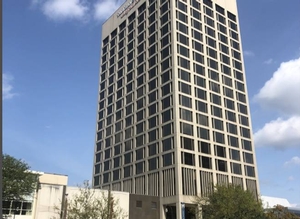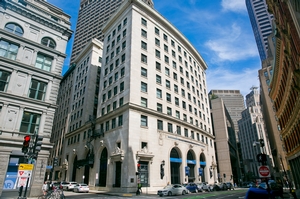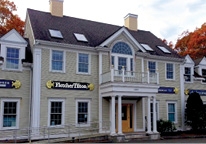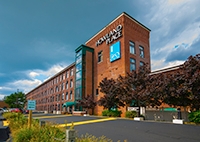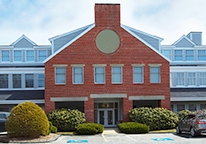Articles
Civil Litigation Basics 7 -- Secondary Engagement – Post-Trial and Appeal
By Michael E. Brangwynne on May 5, 2020This is the seventh and final installment in a series about the basics of the civil litigation process. If you are interested in reading the previous installments, they are available on Fletcher Tilton’s website under the Knowledge Library where you will also find numerous excellent articles on litigation avoidance. This particular series is for those who are beyond the point of avoidance and find themselves preparing to navigate the often-treacherous waters of a civil action.
As we saw in earlier installments, the trial process ends with the finder-of-fact, typically a jury, announcing its verdict. In a typical civil lawsuit, the jury’s answers to the questions posed by the judge will determine the parties’ respective liability to each other – i.e., which party or parties have proven their claims and are therefore entitled to receive payment for their damages. This is not, however, the end of the civil litigation journey – the parties may still challenge the jury’s verdict through post-trial motions and appeal.
Post-Trial Motions
After the jury has been discharged, all parties have an opportunity to present to the judge their arguments for why the verdict was incorrect and should be set aside. This is done by way of post-trial motions. The primary purpose of such motions is to point out alleged errors by the judge that occurred during the trial process – not simply argue that the jury was wrong. For example, a party might argue that certain expert witness testimony should have been precluded because the expert did not sufficiently establish a foundation for his expertise on the subject matter of his testimony. That same party would argue that this inappropriate expert testimony swayed the jury’s decision and resulted in a defective verdict that must therefore be set aside.
The relief sought through post-trial motions typically takes three forms. First, the moving party can request that, based on the alleged errors at trial, the verdict should simply be set aside and a verdict should be entered in his favor. Second, a party can ask that the damages awarded against him by the jury be decreased because the amount of damages awarded was not supported by the evidence submitted at trial. In fact, successful litigants who have been awarded a paltry sum can also argue that the verdict was insufficient based on the evidence, and request that the court increase the damages awarded by the jury. Finally, a party aggrieved by the jury’s verdict can request that the court order a new trial as a cure for the alleged errors that occurred during the first battle.
Post-trial motions are submitted to the court in the weeks following the conclusion of the trial, and the judge will consider the parties’ arguments and decide whether there should be any change to the jury’s verdict. Ultimately, after considering and ruling on post-trial motions, the court will enter a final judgment declaring the outcome of the litigation and the parties’ rights against one another.
Appeal
In many ways, post-trial motions are a preview of the arguments that will be presented if one or more of the parties to a litigation decide to appeal the judgment. An appeal from a final judgment is made to an appellate court. Appellate courts do not conduct trials but, rather, review the proceedings, evidence and rulings of law by the trial judge during the trial to determine whether there is a legal basis for overturning or modifying the judgment of the lower court.
At the first appellate stage in Massachusetts, this review is typically conducted by a panel of three judges. Extensive written briefs are submitted to the court, and the lawyers often make oral arguments before the panel of judges. After briefing and arguments, the panel will issue a decision ruling on the arguments raised on appeal and determine whether the judgment of the lower court should be vacated or affirmed.
After a decision has been issued by the initial appellate court, there is one final avenue for an aggrieved party to pursue – filing an application for further appellate review with the court of last resort. In the Massachusetts state court system, this is the Supreme Judicial Court, and in the federal court system, it is the United States Supreme Court. It is important to note that a second appeal is not available automatically – the highest court must agree to hear the case and will typically do so only when there are important legal implications to the decisions made by the lower courts.
Conclusion
Once all appellate rights have been exhausted, our litigation is finally at an end. For those of you who have been along for the entire ride, the author hopes that you have enjoyed the journey and have emerged with a better understanding of one of the cornerstones of our society – the legal process by which disputes are resolved.
Michael E. Brangwynne is a Civil Litigation attorney at Fletcher Tilton, concentrating his practice in Real Estate and Construction Litigation, Medical and Professional Malpractice and Personal Injury. He works from the firm’s Boston and Worcester offices and can be reached at mbrangwynne@fletchertilton.com
© 2020. This material is intended to offer general information to clients and potential clients of the firm, which information is current to the best of our knowledge on the date indicated below. The information is general and should not be treated as specific legal advice applicable to a particular situation. Fletcher Tilton PC assumes no responsibility for any individual’s reliance on the information disseminated unless, of course, that reliance is as a result of the firm’s specific recommendation made to a client as part of our representation of the client. Please note that changes in the law occur and that information contained herein may need to be reverified from time to time to ensure it is still current. This information was last updated April 2020.
As we saw in earlier installments, the trial process ends with the finder-of-fact, typically a jury, announcing its verdict. In a typical civil lawsuit, the jury’s answers to the questions posed by the judge will determine the parties’ respective liability to each other – i.e., which party or parties have proven their claims and are therefore entitled to receive payment for their damages. This is not, however, the end of the civil litigation journey – the parties may still challenge the jury’s verdict through post-trial motions and appeal.
Post-Trial Motions
After the jury has been discharged, all parties have an opportunity to present to the judge their arguments for why the verdict was incorrect and should be set aside. This is done by way of post-trial motions. The primary purpose of such motions is to point out alleged errors by the judge that occurred during the trial process – not simply argue that the jury was wrong. For example, a party might argue that certain expert witness testimony should have been precluded because the expert did not sufficiently establish a foundation for his expertise on the subject matter of his testimony. That same party would argue that this inappropriate expert testimony swayed the jury’s decision and resulted in a defective verdict that must therefore be set aside. The relief sought through post-trial motions typically takes three forms. First, the moving party can request that, based on the alleged errors at trial, the verdict should simply be set aside and a verdict should be entered in his favor. Second, a party can ask that the damages awarded against him by the jury be decreased because the amount of damages awarded was not supported by the evidence submitted at trial. In fact, successful litigants who have been awarded a paltry sum can also argue that the verdict was insufficient based on the evidence, and request that the court increase the damages awarded by the jury. Finally, a party aggrieved by the jury’s verdict can request that the court order a new trial as a cure for the alleged errors that occurred during the first battle.
Post-trial motions are submitted to the court in the weeks following the conclusion of the trial, and the judge will consider the parties’ arguments and decide whether there should be any change to the jury’s verdict. Ultimately, after considering and ruling on post-trial motions, the court will enter a final judgment declaring the outcome of the litigation and the parties’ rights against one another.
Appeal
In many ways, post-trial motions are a preview of the arguments that will be presented if one or more of the parties to a litigation decide to appeal the judgment. An appeal from a final judgment is made to an appellate court. Appellate courts do not conduct trials but, rather, review the proceedings, evidence and rulings of law by the trial judge during the trial to determine whether there is a legal basis for overturning or modifying the judgment of the lower court. At the first appellate stage in Massachusetts, this review is typically conducted by a panel of three judges. Extensive written briefs are submitted to the court, and the lawyers often make oral arguments before the panel of judges. After briefing and arguments, the panel will issue a decision ruling on the arguments raised on appeal and determine whether the judgment of the lower court should be vacated or affirmed.
After a decision has been issued by the initial appellate court, there is one final avenue for an aggrieved party to pursue – filing an application for further appellate review with the court of last resort. In the Massachusetts state court system, this is the Supreme Judicial Court, and in the federal court system, it is the United States Supreme Court. It is important to note that a second appeal is not available automatically – the highest court must agree to hear the case and will typically do so only when there are important legal implications to the decisions made by the lower courts.
Conclusion
Once all appellate rights have been exhausted, our litigation is finally at an end. For those of you who have been along for the entire ride, the author hopes that you have enjoyed the journey and have emerged with a better understanding of one of the cornerstones of our society – the legal process by which disputes are resolved. Michael E. Brangwynne is a Civil Litigation attorney at Fletcher Tilton, concentrating his practice in Real Estate and Construction Litigation, Medical and Professional Malpractice and Personal Injury. He works from the firm’s Boston and Worcester offices and can be reached at mbrangwynne@fletchertilton.com
© 2020. This material is intended to offer general information to clients and potential clients of the firm, which information is current to the best of our knowledge on the date indicated below. The information is general and should not be treated as specific legal advice applicable to a particular situation. Fletcher Tilton PC assumes no responsibility for any individual’s reliance on the information disseminated unless, of course, that reliance is as a result of the firm’s specific recommendation made to a client as part of our representation of the client. Please note that changes in the law occur and that information contained herein may need to be reverified from time to time to ensure it is still current. This information was last updated April 2020.

